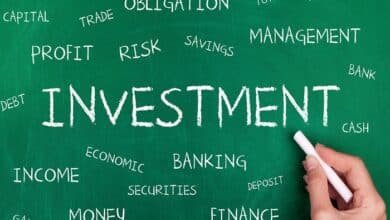Investing in Yourself: The Ultimate Guide to Personal Growth and Success

Introduction
In today’s fast-paced world, the concept of self-investment is more important than ever. Investing in yourself is about committing to personal growth and development, which can lead to significant improvements in various aspects of your life, from career success to mental well-being. This comprehensive guide will explore the numerous ways you can invest in yourself, offering practical advice and actionable tips to help you reach your full potential.
The Importance of Self-Investment
Investing in yourself is the foundation for achieving both personal and professional success. It involves dedicating time, energy, and resources to activities and habits that promote growth and well-being. Understanding why this is important can motivate you to take the necessary steps toward self-improvement.
Set Clear Goals
Setting clear, achievable goals is crucial for personal development. Goals give you direction and a sense of purpose. Break your goals into short-term and long-term objectives, and create a plan to achieve them. This structured approach will keep you focused and motivated.
Develop a Growth Mindset
A growth mindset, a term coined by psychologist Carol Dweck, is the belief that abilities and intelligence can be developed through dedication and hard work. Embracing a growth mindset encourages continuous learning and resilience in the face of challenges.
Invest in Education
Education is a powerful tool for self-investment. Whether through formal education, online courses, workshops, or self-study, expanding your knowledge and skills can open new opportunities and enhance your personal and professional life.
Cultivate Healthy Habits
Your physical health directly impacts your ability to invest in yourself. Cultivate healthy habits such as regular exercise, a balanced diet, adequate sleep, and mindfulness practices like meditation. These habits improve your energy levels, focus, and overall well-being.
Develop Emotional Intelligence
Emotional intelligence (EI) is the ability to understand and manage your emotions and those of others. High EI can lead to better relationships, improved communication, and enhanced problem-solving skills. Invest in developing your emotional intelligence through self-awareness and empathy-building exercises.
Build Strong Relationships
Strong personal and professional relationships are vital for a fulfilling life. Invest time in nurturing your relationships by being supportive, listening actively, and showing appreciation. Networking and connecting with like-minded individuals can also open doors to new opportunities.
Manage Your Finances Wisely
Financial stability is a critical component of self-investment. Learn to manage your finances by creating a budget, saving, and investing wisely. Financial security reduces stress and provides the freedom to pursue your goals and interests.
Embrace Lifelong Learning
Commit to being a lifelong learner. Stay curious and open to new experiences and knowledge. Read books, attend seminars, listen to podcasts, and engage in discussions that challenge your thinking and broaden your horizons.
Prioritize Self-Care
Self-care is not selfish; it is essential. Prioritize activities that rejuvenate and energize you, such as hobbies, relaxation techniques, and spending time with loved ones. Taking care of yourself ensures that you have the energy and enthusiasm to invest in your growth.
Develop Resilience
Resilience is the ability to bounce back from setbacks. Develop resilience by maintaining a positive outlook, staying adaptable, and learning from failures. Resilience helps you persevere through challenges and continue your journey of self-investment.
Seek Mentorship and Guidance
Mentors can provide valuable insights, advice, and support. Seek out mentors in your field or those who inspire you. Their guidance can help you navigate challenges, make informed decisions, and accelerate your growth.
Create a Personal Development Plan
A personal development plan outlines your goals, strengths, areas for improvement, and strategies for achieving your objectives. Regularly review and update your plan to track your progress and stay aligned with your aspirations.
Practice Gratitude
Gratitude has been linked to increased happiness and well-being. Practice gratitude by regularly reflecting on and appreciating the positive aspects of your life. This positive mindset can motivate you to continue investing in yourself.
Balance Work and Life
Achieving a healthy work-life balance is crucial for long-term success and well-being. Set boundaries, manage your time effectively, and ensure you make time for relaxation and leisure activities.
Conclusion
Investing in yourself is a lifelong journey that requires dedication, effort, and a willingness to grow. By setting clear goals, cultivating healthy habits, embracing lifelong learning, and prioritizing self-care, you can achieve personal and professional success. Remember, the most valuable investment you can make is in yourself.
FAQs
- Why is investing in yourself important? Investing in yourself is crucial because it leads to personal growth, improved well-being, and greater success in various areas of your life. It helps you reach your full potential and enhances your overall quality of life.
- How can I start investing in myself? Start by setting clear goals, developing a growth mindset, and prioritizing activities that promote physical, emotional, and intellectual growth. Education, healthy habits, and self-care are great places to begin.
- What are some ways to invest in my education? You can invest in your education through formal schooling, online courses, workshops, and self-study. Continuously seek opportunities to expand your knowledge and skills.
- How do I balance investing in myself with other responsibilities? Balance is key. Set boundaries, manage your time effectively, and prioritize activities that contribute to your growth. Remember that self-investment benefits not only you but also those around you.
- Can investing in myself help my career? Absolutely. Investing in yourself can enhance your skills, knowledge, and confidence, making you more competitive and effective in your career. It can lead to new opportunities and professional growth.





